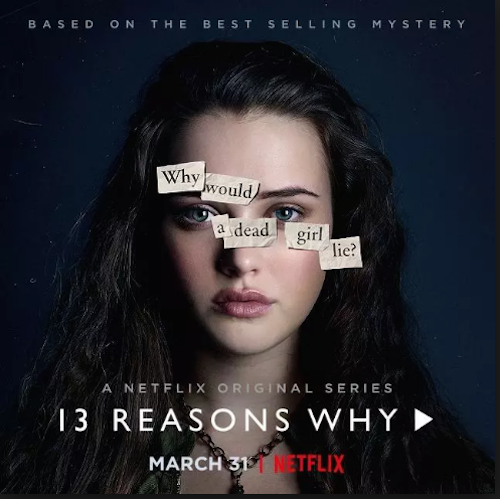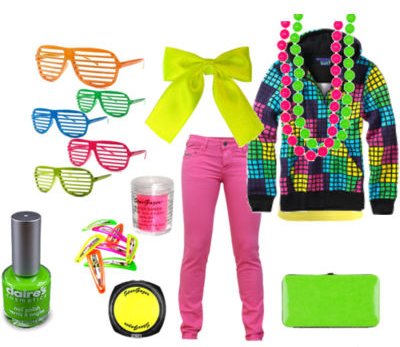“13 Reasons Why” peddles misconceptions to vulnerable audience

Besides presenting dangerous fallacies about suicide and mental illness, “13 Reasons Why” may negatively affect adolescents who are already at a high risk for suicide.
Warning: This article deals with sensitive topics that include sexual assault and suicide.
Thirteen episodes. Thirteen tapes. Thirteen reasons. Innumerable problems.
On Sunday, April 30, Upper School Counselor Dr. Shawn Fleck and Head of Upper School Hollis Amley sent a co-authored email to Upper School parents, warning them about the content of 13 Reasons Why, a popular Netflix series based on Jay Asher’s novel. While the show has gained a significant following, especially among teenagers, it has been criticized by mental health professionals for its graphic depiction of suicide.
On the surface, 13 Reasons Why sparks an important conversation about bullying, sexual assault, depression and suicide. The problem is that 13 Reasons Why is misguided in the way that it deals with these issues.
As the series begins, Hannah Baker is dead. There are memorials and an overwrought outpouring of emotion from her high school community. Worried parents suddenly fear that their children’s mood swings could belie more than just teen angst.
Then, a mysterious set of 13 cassette tapes arrive on the doorstep of Clay Jensen (Dylan Minnette).
Clay listens with horrified fascination as Hannah details the events and people that led to her suicide. Clay journeys through his unnamed small town, visiting the places she mentions, until he finds himself facing the people who wronged Hannah and are desperate to keep the tapes from surfacing.
Hannah Baker suffered terribly during the course of her short life. She was slandered, bullied and eventually raped. The show presents an unflinching view of the damage that comes from sexual harassment and assault. As played by Katherine Langford, we see the bleakness in Hannah’s eyes as she is catcalled in the hallways, and the emotional paralysis that comes after she is raped in episode 12. It’s heartbreaking, and hopefully eye-opening.
The fatal flaw of 13 Reasons is its treatment of mental illness. Depression is not presented as the reason for Hannah’s suicide — her classmates are. As one of Hannah’s friends observed, “We all killed Hannah Baker.”
The omission of any mention of Hannah’s mental illness does the show a disservice. Hannah is depressed. She is numb, despondent and blind to those who still care about her, yet there is no mention of mental illness as a cause of her death. Her suicide is presented as the sole result of the trauma she suffered, which leaves out the truth that teens most need to hear.
Broken as she was, there was still hope for Hannah. 13 Reasons Why prevents any avenue through which Hannah could have gotten the help she so desperately needed. Her parents are distant, her school counselor is insensitive and her friends are “tired of her drama.” What teens need to hear is the polar opposite: confide in your parents, talk to a therapist or call a suicide hotline. Help is somewhere. Hannah just couldn’t find it.
The message of the show seems to be that kindness can save a life. If Clay had just seen Hannah’s sadness, if her parents had paid more attention, if her classmates hadn’t spread rumors, then she might still be alive. The unforeseen but undeniable message is far more twisted: die by suicide in order to unleash vengeance upon your tormentors.
While many suicide victims leave behind notes, Hannah left behind her 13 tapes, painstakingly crafted to incriminate her classmates. Targeting the people she views as responsible for her unhappiness is an unrealistic portrayal of suicide. Even more troubling is the the glorification of Hannah’s suicide as an act of revenge — terrifying those who receive her tapes — which is a dangerous message for a show that claims to accurately depict suicide.
13 Reasons Why presents suicide and retribution as the answer to many problems. Clay grows crueler as he learns of his classmates’ misdeeds and attempts to avenge Hannah’s death while mitigating his own guilt. The show culminates in the attempted suicide of one of Hannah’s tormentors.
The show’s creators, including producer Selena Gomez, seem unaware of how 13 Reasons Why may affect adolescents who are already at a high risk for suicide. Hannah’s graphic suicide scene was a grave misstep, as such realistic depictions are known to cause suicidal thoughts in teens with mental health issues.
The National Association of School Psychologists warned of the show’s dangers for teens with already fragile mental health: “We do not recommend that vulnerable youth, especially those who have any degree of suicidal ideation, watch this series. Its powerful storytelling may lead impressionable viewers to romanticize the choices made by the characters and/or develop revenge fantasies.”
Dangerous as it is, 13 Reasons Why should serve as a wakeup call. No longer can we ignore the misconceptions among teens regarding mental illness, rape and bullying; the show has brought them into the light.
We need to talk about mental health with the same seriousness and frequency with which we discuss our college prospects, and we need to start now. The passivity of those around Hannah didn’t help her, but with frank dialogue, schools and parents can help those who feel like they are struggling alone.
Hannah Baker is already dead when we listen to her tapes. We hear her witty, poignant voice. We are, at best, hearing her echo. She has no agency in Clay’s “avenging angel” proceedings, no stake in the show’s world anymore. Suicide robs people of their power. We and Hannah are only spectators to whatever plays out once Clay receives her tapes.
With the right approach, 13 Reasons Why could have been a necessary presentation of the oft-ignored teen mental health crisis. Instead it makes things worse, not better.
*If you or anyone you know is thinking about suicide, please call the National Suicide Prevention Lifeline at 1-800-273-TALK (8255) or the Suicide Crisis Line at 1-800-784-2433 for help and support.

Sophie Caldwell is one of the Editors-in-Chief. She is a senior, and this is her fourth year on The Review.














Peter Tabor • May 16, 2017 at 1:32 PM
I am so very tired of the criticism of this series. Why is it that everyone cheers when Jerry Maquire utters the most unhealthy declaration ever “You Complete Me” and everyone Piles on when a show has the Audacity to honestly reflect on a person who asks the abyss “why should I go on” and the abyss doesn’t have anything to say. I get the flaws. Hannah’s victimizations seem endless. Tony…what? And making 13 tapes that would more reflect years of therapy than the deepest dregs of depression is silly. But at the risk of a couple of plot holes it gives so much back that demands serious discussion. Friends, family, therapists and hotlines exist and they are held up like a shield to pre absolve society to be able to say over and over “Hannah made her choice”. When Clay has it right and says that simply isn’t good enough. 13 Reasons puts out there that what is insignificant to one is profound to another and as a society we are in touch with this but we need to take a much harder look at it. And as someone that has walked in Hannah’s shoes I can tell you personally just how real emotional vacancy is and trust me that place is paved in negative social encounters that become increasingly sensitive until there is no sensitivity at all. 13 Reasons got it right. You’re perceiving it wrong.
Jeishii • May 18, 2017 at 1:18 AM
I have to disagree with you there. I’m on epiaode 7 and I had to stop.
I HAVE mental illness. I HAVE suicidal ideation. I have been bullied.
I see so little logic in the story, Hannah herself is crafted as more of a vengeful ghost than a tragic figure – I am finding it impossible to finish. The complacent stupidity of many of the characters and their fate of being shoehorned into vague bully tropes is just disheartening.
I can empathize with Clay to some extent – at least they mentioned his anxiery at least once so far which is a catalyst for his high flight response and failure to act. But crafting Hannah as a victim whose clearest characteristic I can see is being spiteful with only bare hints to her actual depression – to treat suicide like a tool to torment your tormentors – is bad writing. By episode 6 this already started to feel like vengeful spirit territory. Like at some point someone was going to announce they needed to exhume her and burn the bones so her spirit could rest.
It feels like campy horror/psychological thriller even though it’s trying so damn hard to be poignant.
Yes suicide and bullying nerd to be talked about and I’m glad the show opened that dialog again – but don’t try and make it into a masterpiece and don’t try and sweep its well meaning but misguided handling of its topic under the rug.
Jeishii • May 18, 2017 at 1:20 AM
Pardon my typos. Autocorrect on my phone is not very… correct.